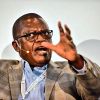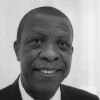8 Best-Selling Economics Theory Books Millions Love
Discover top Economics Theory books recommended by economist Steven Levitt, entrepreneur Patrick Betdavid, and scholar Jared Diamond—trusted voices in economic thought.






There's something special about books that both critics and crowds love, especially in a field as vital as Economics Theory. These 8 best-selling books have shaped how economists and thinkers understand money, markets, and institutions. Economics Theory remains crucial today as governments and businesses navigate global challenges, making these works more relevant than ever.
Experts like Steven Levitt, co-author of "Freakonomics," and Patrick Betdavid, a dynamic entrepreneur, have brought attention to titles like "Why Nations Fail," highlighting how economic institutions influence prosperity. Historian Jared Diamond praises these works for bridging economic analysis with real-world impact, revealing the forces behind wealth and poverty.
While these popular books provide proven frameworks, readers seeking content tailored to their specific Economics Theory needs might consider creating a personalized Economics Theory book that combines these validated approaches. Such customization ensures your study matches your background and goals, making complex theory accessible and actionable.
Recommended by Steven Levitt
Economist, Co-Author of "Freakonomics"
“Why Nations Fail is a truly awesome book. Acemoglu and Robinson tackle one of the most important problems in the social sciences—a question that has bedeviled leading thinkers for centuries—and offer an answer that is brilliant in its simplicity and power.”
by Daron Acemoglu, James A. Robinson··You?
by Daron Acemoglu, James A. Robinson··You?
Unlike most economics theory books that focus narrowly on market forces or geography, this work challenges you to rethink the roots of prosperity through political and economic institutions. Co-authors Daron Acemoglu, an MIT economics professor, and James A. Robinson, a Harvard political scientist, present compelling historical cases—like the contrasting fortunes of North and South Korea—to illustrate how man-made institutions shape national wealth. You’ll gain insights into the interplay between power structures and economic outcomes, with chapters examining everything from the Roman Empire to modern China. This book suits you if you want to understand the deeper forces influencing global inequality and the future of economic development.
by Ludwig von Mises·You?
by Ludwig von Mises·You?
Ludwig von Mises's extensive experience as a leading Austrian School economist shaped this book into a rigorous examination of money's economic role. You’ll explore how money integrates into broader economic analysis and gain a fresh perspective on the trade cycle through Mises’s innovative monetary theory. The book challenges conventional economic models by providing a foundation that influenced Nobel Laureate F. A. Hayek’s work. If you want to deepen your understanding of monetary dynamics and economic fluctuations, this text offers detailed theoretical frameworks, though it demands patience and some prior economic knowledge.
by TailoredRead AI·
by TailoredRead AI·
This tailored examination of monetary theory delves deeply into battle-tested methods that address key challenges within economics theory. By focusing on your interests and background, this personalized book explores how monetary concepts influence real-world economic dynamics. It examines core principles alongside nuanced applications, integrating insights that millions have found valuable. The content reveals complex monetary mechanisms through a clear, customized lens, ensuring you engage with material relevant to your goals and knowledge level. This approach fosters a rich learning experience, blending foundational theory with practical exploration tailored specifically to your objectives in economics.
by Mark Blaug·You?
by Mark Blaug·You?
Mark Blaug's extensive experience as a historian of economic thought shapes this detailed examination of economic theories over time. You gain insight into how foundational ideas evolved, including critiques and reinterpretations that challenge traditional narratives. The book's depth spans classical to modern economics, offering frameworks and historical context that sharpen your understanding of economic methodology. If you seek a thorough grasp of theory development rather than quick applications, this text suits academics, economists, and serious students aiming to contextualize current economic debates within their intellectual roots.
by Hannu Nurmi··You?
by Hannu Nurmi··You?
Hannu Nurmi, with his extensive background in political economics, crafted this book to bridge foundational theory and emerging techniques in the field. You’ll explore core concepts like decision theory and game theory alongside newer areas such as mechanism design and asymmetric information games. This book offers a rigorous yet accessible introduction that equips you to navigate the increasingly complex technical landscape of political economics. If you’re studying economics or political science and want a solid grasp of both classical and modern analytical tools, this text provides clear frameworks and thoughtful exposition without unnecessary jargon.
Recommended by Roy Sebag
Founder at Goldmoney and Mene
“@CSir2017 @Goldmoney Dear Christopher, I strongly recommend you brush up on some economic history. The first book I implore you to read is called "The Wealth of Nations". In the book, a system of cooperation is described in great detail (capitalism) where the money being employed is Gold and Silver.” (from X)
by Adam Smith··You?
by Adam Smith··You?
Drawing from his deep roots in moral philosophy and the Scottish Enlightenment, Adam Smith crafted "The Wealth of Nations" to dissect how self-interest and competition drive economic prosperity. You’ll find detailed analysis on the mechanisms of capitalism, including Smith’s famous concept of the 'invisible hand' guiding markets. The book dives into 18th-century economic conditions but offers insights that still resonate in today’s policy debates. If you're curious about the foundations of modern market economies and political economy, this work lays out the principles in a way that challenges and informs your understanding of wealth creation and economic cooperation.
by TailoredRead AI·
This tailored book on economics theory provides a step-by-step exploration designed to accelerate your understanding and application of key economic concepts. It combines widely respected economic knowledge with a focus on your personal interests and background, offering a learning experience that matches your specific goals. The content covers essential economic theories and practical actions to help you grasp complex ideas quickly and apply them effectively in real-world scenarios. Through this personalized approach, the book reveals how economic principles connect to current challenges and opportunities, making the subject both accessible and engaging for your fast-paced learning needs.
by Karl Marx, Ben Fowkes, Ernest Mandel··You?
by Karl Marx, Ben Fowkes, Ernest Mandel··You?
Karl Marx challenges the conventional wisdom that capitalism is a stable and just system, offering a deep critique of private property and the social dynamics it fosters. Drawing from his exile in England and extensive knowledge of 19th-century society, Marx unpacks how capitalism intensifies wealth disparities and anticipates its eventual replacement by common ownership. You’ll explore the foundational concepts of political economy, including the nature of labor, value, and capital accumulation, with detailed analyses that shaped political movements worldwide. This book is best suited for those interested in economic systems, political philosophy, and social change rather than casual economic overviews.
by Maurice Dobb·You?
When Maurice Dobb explored the debates surrounding capital theory, he set out to clarify a longstanding confusion in economic thought. His analysis centers on how the classical tradition diverged into two streams, especially illuminated by Sraffa's pivotal work, which challenged prevailing interpretations. You’ll gain insights into the evolution of economic ideas about value and distribution, supported by historical context and critical examination of key theorists like Jevons. This book suits those invested in deepening their grasp of economic theory's foundations and ideological shifts over time, particularly graduate students, academics, and serious enthusiasts of economic history.
by Maurice Dobb·You?
by Maurice Dobb·You?
After analyzing numerous economic models and policies, Maurice Dobb compiled a series of essays that probe deeply into wage theory, investment strategies in developing nations, and Soviet economic growth plans. His background as a Marxist economist shapes a critical examination of capitalism and socialism, offering you nuanced perspectives rarely found in mainstream texts. You’ll explore his thoughtful critique of economic systems alongside a study of Bernard Shaw’s economic ideas, gaining insight into mid-20th-century economic debates. This collection suits those interested in the intersection of economic theory and political economy, especially if you want to understand historical frameworks influencing modern economic thought.
Proven Economics Theory, Personalized ✨
Get expert-endorsed strategies tailored to your unique Economics Theory goals and background.
Trusted by thousands of Economics Theory enthusiasts worldwide
Conclusion
These 8 books collectively explore proven frameworks—from monetary theory and institutional analysis to critiques of capitalism and socialism—that have stood the test of time and garnered wide expert endorsement. If you prefer proven methods, start with classics like "The Wealth of Nations" or "The Theory of Money and Credit." For validated approaches to political economy, "Why Nations Fail" and "Models of Political Economy" offer compelling insights.
Combining readings like "Capital" with "Theories of Value and Distribution since Adam Smith" deepens understanding of economic ideology shifts. Alternatively, you can create a personalized Economics Theory book to combine proven methods with your unique needs.
These widely-adopted approaches have helped many readers succeed in grasping complex economic dynamics and applying theory thoughtfully to real-world issues.
Frequently Asked Questions
I'm overwhelmed by choice – which book should I start with?
Start with "The Wealth of Nations" by Adam Smith for foundational market economics. It sets the stage for understanding modern economic theory and is accessible for newcomers.
Are these books too advanced for someone new to Economics Theory?
Some books like "Economic Theory in Retrospect" are dense, but titles such as "Why Nations Fail" provide engaging narratives accessible to motivated beginners.
What's the best order to read these books?
Begin with classics like "The Wealth of Nations," then explore institutional analysis with "Why Nations Fail," followed by specialized texts like "Models of Political Economy." This progression builds understanding gradually.
Do I really need to read all of these, or can I just pick one?
You can pick based on your interests. For monetary focus, choose "The Theory of Money and Credit." For political economy, "Models of Political Economy" is ideal. Each offers distinct perspectives.
Are any of these books outdated given how fast Economics Theory changes?
While some are older, such as Marx's "Capital," their foundational insights remain influential and continue to inform modern economic debates and frameworks.
Can I get tailored Economics Theory insights instead of reading all these books?
Yes! These expert books offer solid foundations, but personalized content can align with your specific goals and background. Consider creating a personalized Economics Theory book to combine popular methods with your unique needs.
📚 Love this book list?
Help fellow book lovers discover great books, share this curated list with others!
Related Articles You May Like
Explore more curated book recommendations







